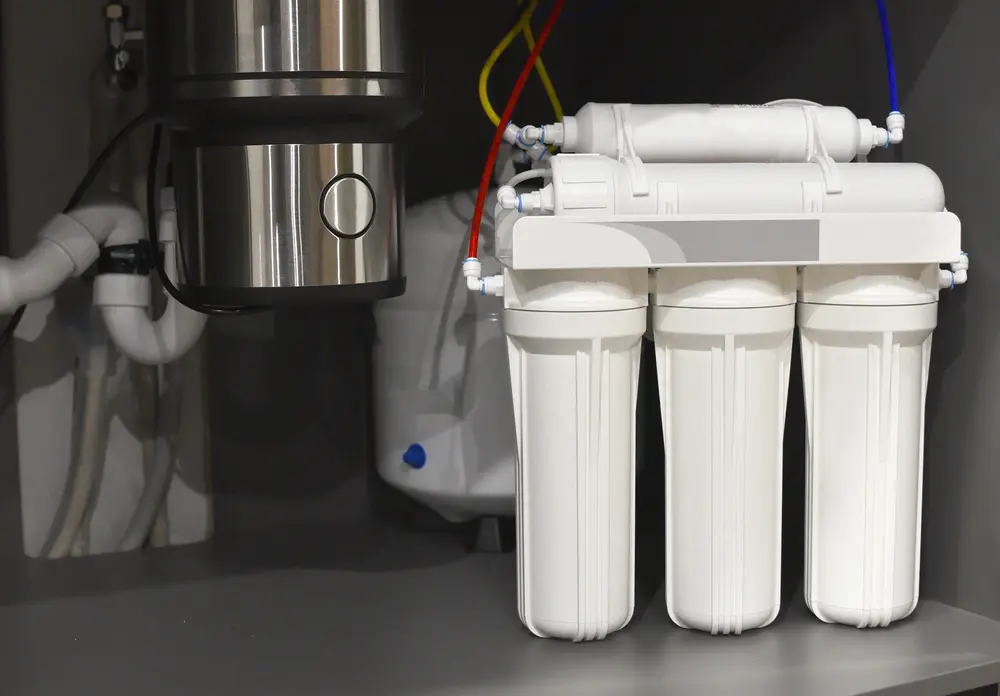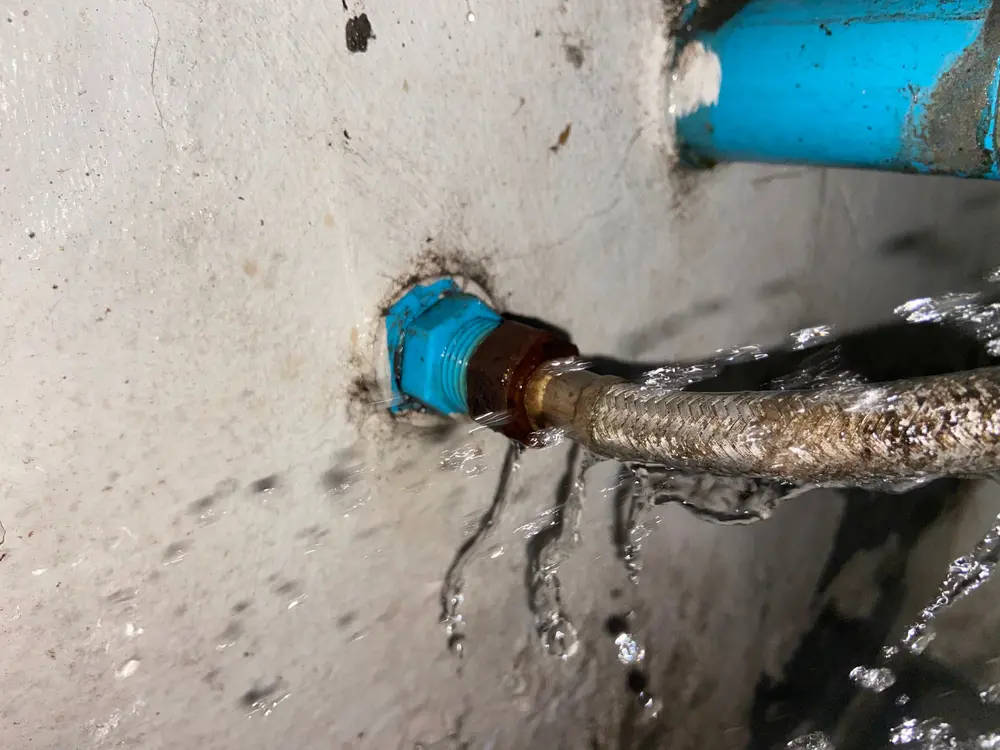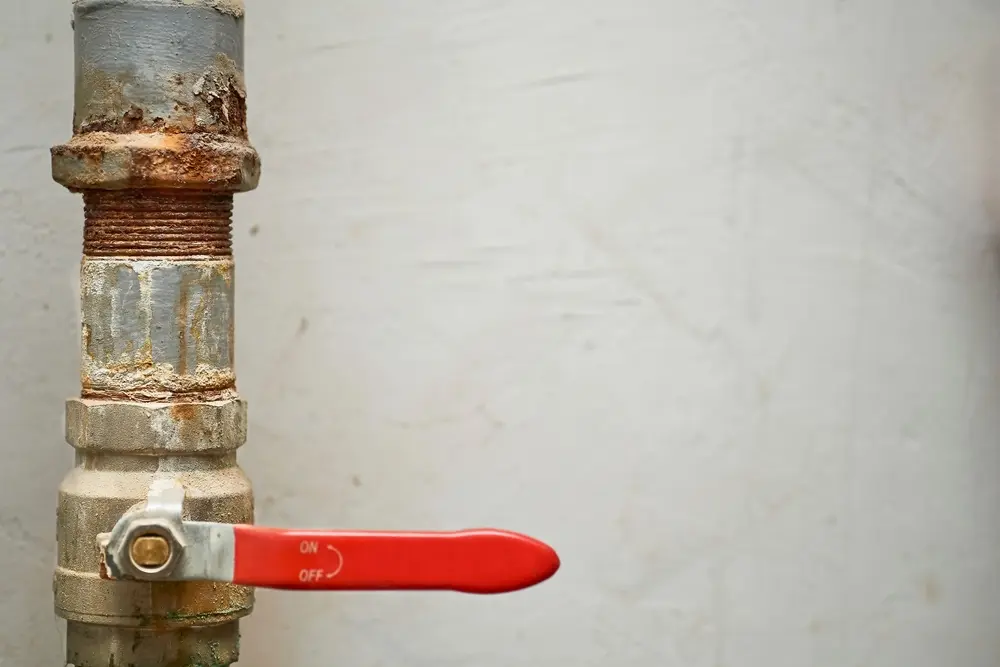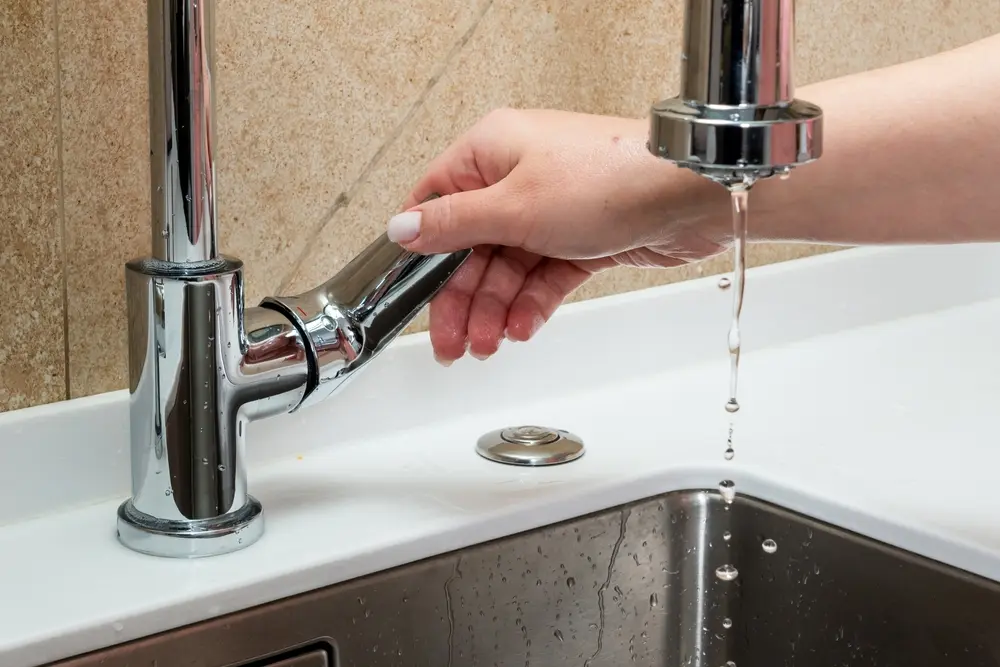Whether you wash your hands or take a relaxing shower, low water pressure is annoying and poses potential dangers for your home. The source behind poor water pressure could be linked to various problems, from a troublesome pipe clog to a faulty fixture.
What could be causing your low pressure? Expert plumbers from Charles Stone have broken down the common causes of low residential water pressure and the solutions you can utilize to restore yours.
What Causes Low Water Pressure in Your Home?
Low water pressure is a common plumbing problem—but what causes this issue so frequently? Low water pressure can be linked to eight common causes, which include:

Clogged or Corroded Pipes
Over time, pipes can develop lime scale buildup, resulting in disruptive blockages to water and, in turn, lower water pressure. This is common in households with hard water flowing through the pipework.
- How to Fix: Unfortunately, your pipework can be expensive and complex, making it impossible to DIY. Aside from installing a water softener system, contact a professional plumber to perform an inspection and any needed maintenance.
Faulty Pressure Regulator
The pressure regulator is the main control for maintaining safe water pressure in your home. If the device breaks or malfunctions, your water pressure can become low or uneven. If this issue is not addressed, it can slowly wear down your plumbing, resulting in more severe problems.
- How to Fix: A broken pressure regulator should be fixed by an expert plumber who can perform a professional inspection and efficient plumbing repairs.

Leaking Pipes
Leaks in your plumbing are never something you want, especially in the case of your water pressure. Whether from worn-down pipework or improper installation, the smallest leaks can allow water to escape. If this happens, you risk problems like severe water damage or high bills, and it can also lower your water pressure.
- How to Fix: A leak in your plumbing is never an issue to ignore. The best solution is to consult a professional plumber for leak detection & repair services.
Faulty Fixtures:
If low residential water pressure affects just a few fixtures, like your shower head, the issue is likely with the aerator or cartridge. The aerator, located at the end of the fixture, can become clogged with debris, restricting water flow without affecting overall pressure. Similarly, a faulty cartridge beneath the sink handle can cause erratic water flow.
- How to Fix: Clean debris buildup from clogged fixtures like showerheads. If your faucets are the problem, clean and reinstall the aerator to see if the water flow improves.

Partially Closed Valves
For some homes, the culprit can be a partially closed valve. These components control the water flow from your water supplier to your home. If accidentally left partially closed, it results in poor water flow and, in turn, a worse water pressure.
This problem can also extend to the different valves for each fixture, like sinks and toilets.
- How to Fix: Look at the valves in your plumbing system and ensure they are fully opened.
Shared Pipelines
If you and your neighbor draw water through the same piping, you share pipelines. This doesn’t mean you pay for their bills, but it can lead to occasional issues. Using your water when neighbors use their shower or prominent fixture can severely affect your water pressure.
- How to Fix: While you can’t ask your neighbors to stop showering or washing their clothes, you can call a professional plumber to inspect and maintain the pipework to ensure zero issues affect the pressure.
High Water Demand

Certain appliances or fixtures in your home require a large amount of water to function, and your water supply can only provide so much. As a result, trying to turn the faucet when another one is running alongside the shower can severely lower the water pressure when using other appliances.
- How to Fix: The best fix is to manage your water usage and coordinate your schedules. So instead of taking a shower right when the laundry cycle starts, hold off until the washing is done. Coordinating your household’s schedule allows enough water to go around.
Water Supplier Issues
Some pressure issues are outside your control, as your municipal water supplier could have problems in certain circumstances. They can attempt to resolve issues like a system break or a burst pipe, which temporarily affect the effectiveness of your water pressure.
For homes that get their supply from a well, the issue can come from the well potentially being dry or a pump malfunctioning.
- How to Fix: If you get your water from a municipal source, it’s best to call them regarding the system’s current status. If supplied by a well, inspect your system for malfunctioning components or adjust the pressure switch to try to clear out any clogs. When everything fails, it’s best to leave it to a reliable plumber to inspect your system.
Restore Water Pressure with Help from Charles Stone
Investigating your residential water pressure issue can be complex without the right expertise and tools. This is until you call the professional plumbers at Charles Stone. Our expert plumbing inspections and maintenance services get to the bottom of your plumbing problems.
We safely navigate to locate the issue and apply our efficient and safe repair methods to restore your water pressure to the perfect setting. Don’t settle for a lackluster shower or faucet spray that can barely clean dishes.
Call the Charles Stone plumbing professionals at (931) 342-1149. With decades of experience, no issue is too complex for us to find and fix quickly.
Water Pressure FAQs:
Why is low water pressure dangerous?
Low water pressure can result in backflow to be sucked into your water system. The result is that your home’s primary water source is contaminated, risking serious health risks along with other issues like potential plumbing backups.
Who do I call if my water pressure is low?
Low water pressure can signal much more severe issues in your plumbing system. When pressure issues occur within your plumbing system, it’s important to contact a reputable professional plumber, such as an expert from Charles Stone. They’ll provide an in-depth inspection to find the source of the issue.
How can I get my water pressure back up?
The best way to regain your water pressure is to find and slightly adjust your regulator. The regulator has a component in the form of a small screw that can move clockwise to increase your pressure. Do this and then inspect for any changes to the pressure around the home. If the slight adjustment did not make a difference, it’s better to call a professional plumber for consultation and maintenance.

